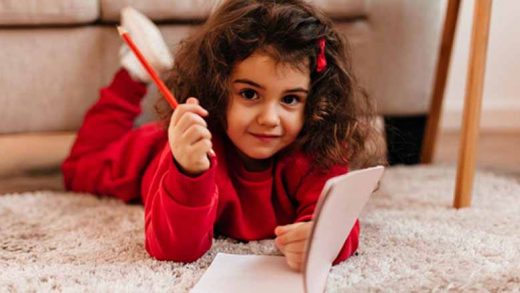Preschoolers live in a magical environment where there are always development opportunities. A child can communicate, express, and understand their environment by using language development. Using interactive theatre activities may be a fantastic method to improve language abilities.
Every activity will attract and motivate kids. From theatrical play sessions to puppet performances, everything is important. Preschoolers improve their language skills and develop critical social and emotional intelligence through these activities. Let’s work together to spark people’s imaginations, and give voices a platform. It will open doors for a lifetime of powerful communication.
What are Theatre Activities?
Preschool theatre activities involve using theatrical expression to playfully explore imagination and creativity. These exercises will get kids involved in performance, role-playing, and storytelling. Preschoolers learn important skills like problem-solving, empathy, teamwork, and communication through dramatic play. Preschoolers may pretend to be different characters, animals, or objects during theatrical activities. It will encourage them to experiment with different roles and viewpoints.
Also, kids could take part in basic storytelling activities. They can play out scenarios and create stories using their imaginations. Preschoolers benefit from movement-based activities such as dancing, miming, and utilising props to express themselves.
Why is Language Development Important?
Preschoolers’ language development is the constant learning and improvement of language abilities. It usually takes place between the ages of three and five. Great improvements in vocabulary, grammar, and communication skills are its features. The following are some important elements of kids’ language development:
- Vocabulary Expansion:
- Grammar and Syntax:
- Pragmatics:
- Narrative Skills:
Preschoolers pick up new words at an amazing pace and quickly add them to their vocabulary. They start to learn and apply more difficult words and ideas, even abstract ones.
During the preschool years, there is a clear development in both grammar and sentence structure. Kids begin to use better word order, proper verb tenses, and longer sentences.
Preschoolers gain skills in using language for various tasks, including bargaining, informing, and making requests. They also pick up social norms like using polite language.
Preschoolers are better at telling and processing stories as they grow. They can follow basic storylines and start telling their tales, but often with shortened plots.
By providing chances for meaningful engagement and discovery, rich language experiences, and responsive communication, parents and educators may play a significant role in supporting and fostering language development.
Best Theatre Activities to Promote Language Development
Preschoolers may benefit greatly from interactive theatre activities as they improve their language skills. Here are a few enjoyable and interesting theatre activities for kids:
- Puppet Shows:
- Role-playing:
- Storytelling Circle:
- Dramatic Play Centres:
- Storybook Dramatisation:
- Improv Games:
- Sensory Storytelling:
- Character Interviews:
Arrange a special space with a variety of puppets and a puppet theatre. Children should be encouraged to choose puppets and make up their tales. They may adopt several personas, work on crafting a narrative, and try out various voice acting for each character. This practice improves creativity innovative thinking and language development.
Set up stations or themed dress-up areas where kids may dress up as various characters. Gather props, clothes, and situation elements. Kids naturally use language to discuss roles, express their thoughts and emotions, and interact with others when they play pretend.
Organise kids into a circle and start a group storytelling activity. Begin with an easy line or narrative prompt, and as the tale progresses around the circle, urge each youngster to contribute one sentence at a time. As kids share their ideas, and listen to others, this game promotes creativity, teamwork, and language development.
Create a variety of themed dramatic play zones in your classroom or playroom, complete with matching accessories. Let kids explore these areas at will, pretend to be other people, and play pretend. By enacting scenarios such as cooking in a kitchen or tending to patients in a doctor’s office, children enhance their language skills in context, expand their vocabulary about common situations, and gain confidence in speaking with their peers.
Choose a children’s favourite book and ask them to act it out as a class. Give them clothes and accessories, and encourage them to dress up as various characters. Encourage kids to debate the tale once it has been dramatised to help them with understanding and critical thinking.
It fosters unexpected storytelling and teamwork. In this game, kids listen, react, and contribute to the story as it develops, which fosters rapid thinking, creativity, and oral communication skills.
Using sensory aspects of telling stories may improve the storytelling experience. Offer tactile materials with various odours and noises, or textured textiles. To improve linguistic and sensory awareness, ask kids to explain their sensory experiences and include them in their stories.
Choose a character from a narrative or make up a fake situation, then ask kids to have “interviews” with the figure. Kids may take turns asking questions and giving thoughtful, character-driven answers. It will improve their conversational abilities, critical thinking, and knowledge of other viewpoints.
Don’t forget to give kids plenty of chances for free play and discovery, and to take their lead when it comes to their interests and preferences. These should be enjoyable and exciting activities that foster the growth of language in a caring environment.
Interactive theatre activities for kids are a fun way to help them improve their speaking skills. Children interact in language-rich situations via role-playing, creative play, and storytelling, where they learn the skills necessary to express themselves, understand stories, and communicate successfully. These exercises foster critical thinking, creativity, and social interaction while providing a strong basis for language development. With a focus on stimulating young brains, Kangaroo Kids International Preschool provides a wide array of interactive theatre programmes that parents may use to enhance their preschoolers’ language development. Enrol your preschooler in Kangaroo Kids now to start their adventure of language development. Interactive theatre is a useful instrument for developing language skills and a passion for the performing arts that lasts a lifetime.









